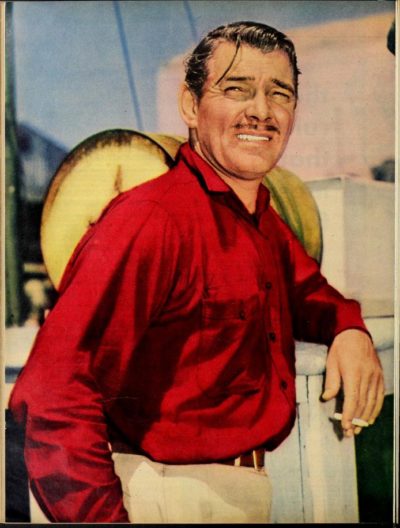
{New Article} 1949: The Story Behind The Gable Legend
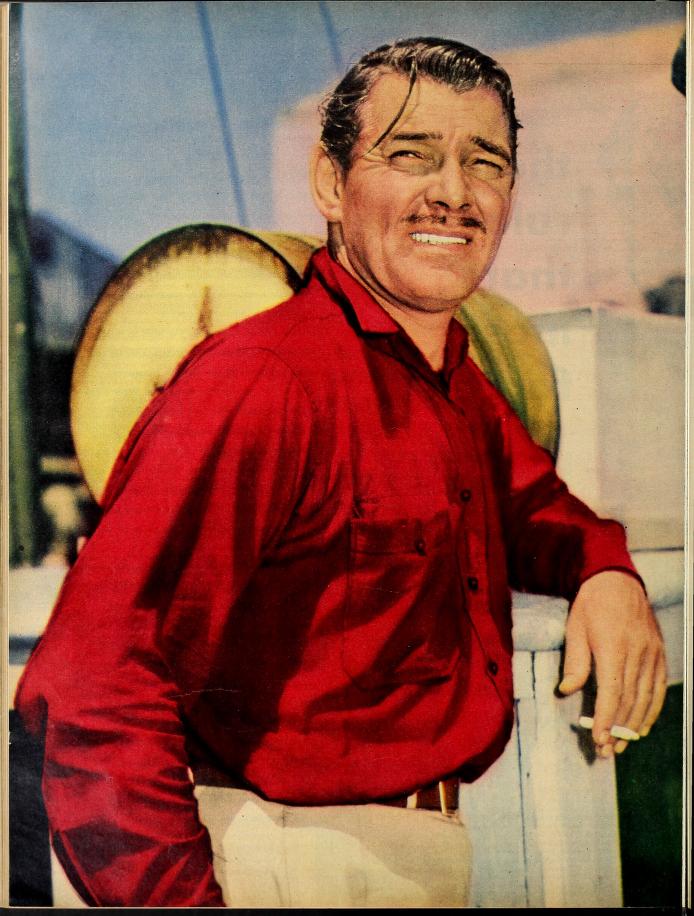
Here’s a new article from 1949. Most of the fan magazine articles about Clark in this post-WWII, late 1940’s period are all about who he’s dating and who will be the next Mrs. Gable. This one has actually has some nice quotes about Clark. It’s kind of funny that in 1949 there is an article trying to explain why Clark Gable has been popular for almost 20 years. Here we are, 90 years after his film debut, still talking about him!
He’s launched a double-dozen young actresses to fame through being his leading lady. He’s been a man’s hero, too. No clotheshorse ever, when he wore turtlenecked sweaters, everybody started wearing them. When he sported a Tyrolean hat, the same. He boosted along the popularity of skeet-shooting by taking it up. He helped boom hunting and fishing. He’s the original hot-rod kid. He aided mightily in glamorizing the Air Corps. During the war, Hitler dangled prizes before his Luftwaffe for the Nazi pilot who could bring him down.
Come December 4, 1950, which is only a year away, Clark will have been on MGM’s payroll 20 years. (He signed up first for two.) Yet he’s just getting his second wind as Mr. Hollywood. Why and how come? What’s the Gable magic? Why is his popularity perpetual, his worldwide audience unlimited, untired, unsatisfied, unrelentingly loyal, militantly devoted—in spite of time and times, good and bad, and Gable pictures the same? How does the guy do it?
Even some of Gable’s close friends seem baffled when they try to put a finger on just what the magic is. But long ago, the late Irving Thalberg, MGM’s great producing genius, summed up his ten-new star pretty pithily: “Gable is manhood, personified,” he appraised. “He’s what every man admires, every woman loves, every boy would like to grow up to be.” You could say the same thing today. Since then Clark Gable and the Gable charm both have been analyzed curiously from every angle because there’s never been anyone remotely like him. In fact, the oft-tried Hollywood beginner’s ballyhoo, “He’s another Gable,” has always boomeranged as an absurd and blighting career kiss-of-death. There’s no such animal, never will be, and every candidate posing as such has been rudely laughed off screen.
Clark himself has consistently snorted his perennial, “I’m lucky,” explanation and gone on being himself, on the screen and off. Still, there’s more to the Gable power than a rabbit’s foot—more, too, than Thalberg’s triple-threat theory of virility, sex-appeal and hero stature.
For one thing, Clark Gable knows his business from the ground up—which is where he started as an extra. Maybe he ought to, after all these years. But there are plenty of other star veterans who still don’t, who haven’t had the enthusiasm, the curiosity and the conscientious competence that Gable owns as much today as when he began.
Though he won an Oscar for “It Happened One Night” (and gave it away to a boy admirer), he’s not a great actor, if you believe either the critics or most directors. But Mervyn LeRoy, one of his longtime boosters and part discoverer, disagrees. “Don’t ever kid yourself,” he told me. “Gable’s as good as they come on the screen. He can handle any scene in a way that pulls every eye right to him, and that, like nothing else, is movie greatness.”
Clark knows everything about making movies—in every department. He’s never in his trailer dressing room between takes unless absolutely necessary, and then the door’s never closed—he might miss something. He’s out in the center of things with the people who are putting him on film. When a camera breaks down, he’s got his head poked inside and his fingers fiddling until the bug’s licked. “Shug” Keeler, a hunting pal of his, who’s worked on dozens of Gable films, told me: “Clark could take out a card in darned near any studio union today. He could handle almost any job—electrician, carpenter, prop, grip, camera crew. He’s learned by being curious as a cat.”
“Clark Gable’s stayed great because he has the common touch,” one of his best pals, the late director Victor Fleming told me once. “He likes people as much as they like him. I’ve never seen him bored or blasé in any setting.” Victor Fleming directed Gable in “Gone with the Wind” and “Test Pilot.” Fleming was a rugged man like Clark, and the pair used to roar over the California countryside on motorcycles playing a sort of follow-the-leader on the highway. Often Gable disappeared and Vic would find him back somewhere chummed up with other Sunday motorbike clubs made up for factory workers, mechanics and store clerks.
“People see and admire in Clark whatever they want to,” thinks Howard Strickling, MGM official and Gable’s close friend and ranch neighbor in the San Fernando Valley. Howard’s travelled a lot with Clark. “They feel they know him. After all, they’ve either grown up or grown older with Clark. They’ve watched him fight, make love, eat, drink, sleep, shave, dress, get in jams and out of them, laugh, play, and get smacked around by life, just as they do—only on the screen. They’ve formed their ideas long ago about what he’s like and he doesn’t let them down. When he meets them, he’s the same guy they think they know.”
You can read the article in its entirety in The Article Archive.

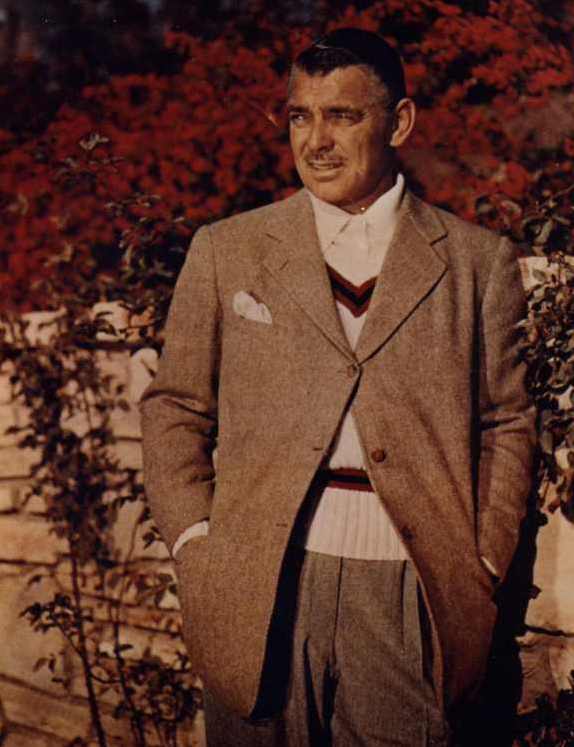
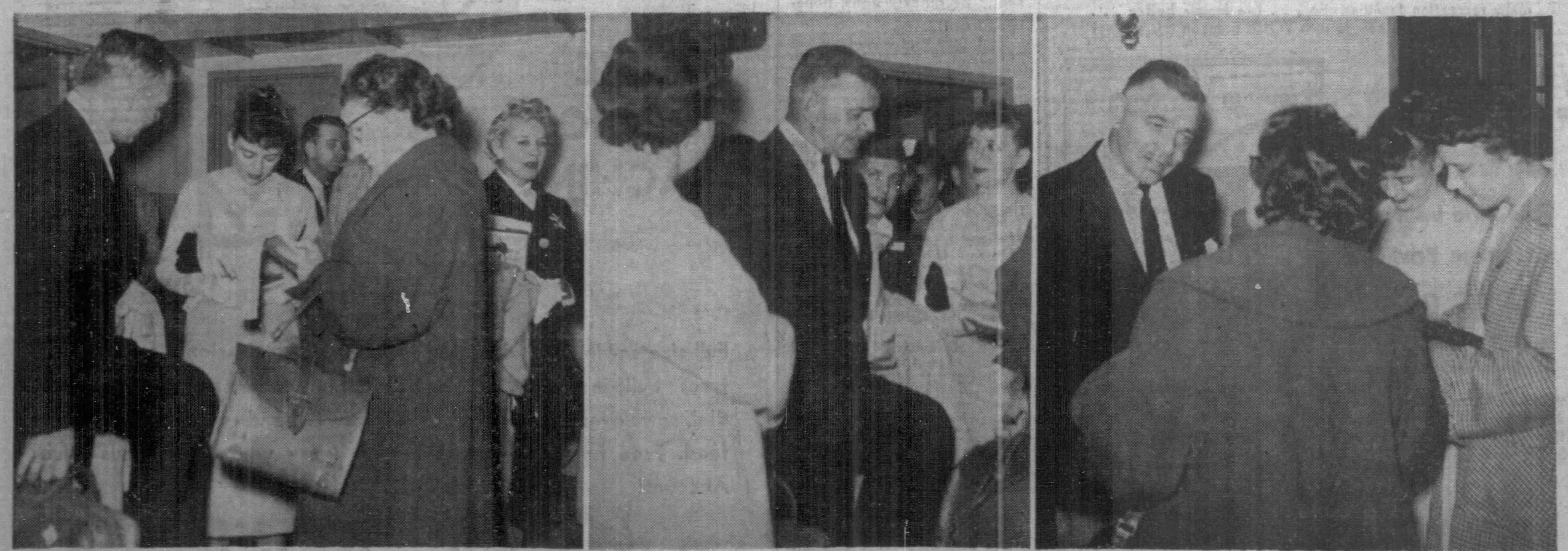
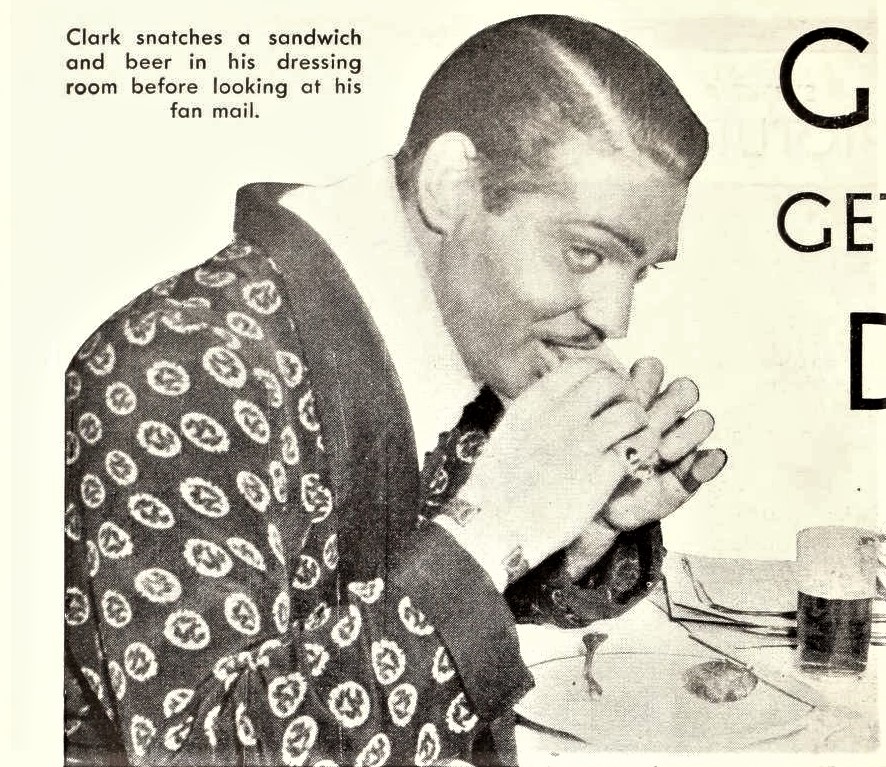
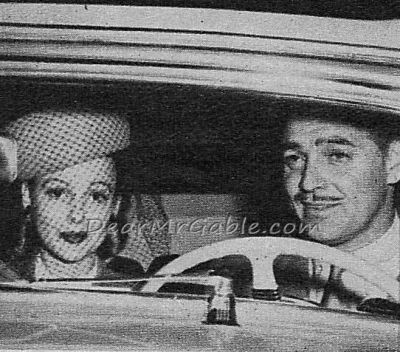
2 Comments
Dan
It was his ability to capture the imaginations of the elite and still fit in with the people who made up the working class that is so interesting to me. He personified manhood and glamour but was right at home with those who ran errands, fixed the cars, operated cameras, etc. at the studios. That is a particular kind of gift for sure
Rhonda
Thank you for finding this good article.
About Gable’s appeal, I agree with all the above opinions.
Plus, his “never take this movie-business too seriously” attitude along with his very “not Hollywood” outdoorsman lifestyle showed his sincere appreciation of the “regular guy.” This added to his genuine masculine presence. He often played a version of his own personality that folks knew and loved. He knew he was handsome, carried himself well, and knew how to wear the right clothes. He had a natural understanding of gentlemen’s style: always stylish without looking styled.
I could go on…